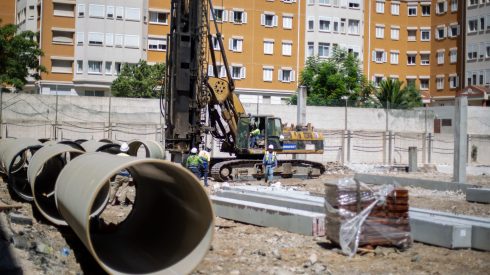THE LEADER of Spain’s conservative Popular Party (PP), Alberto Nuñez Feijoo, did a serious about face on Tuesday, as he continued to seek support for his investiture as prime minister. The Galician politician was the winner of Sunday’s general election, but needs the backing of other parties if he is to be voted into power in the lower house of parliament, the Congress of Deputies.
During the election campaign, Feijoo committed to ‘abolishing sanchismo’, in reference to the policies and time in power of caretaker prime minister Pedro Sanchez of the Socialist Party. Now, however, he is courting the leftist group in a bid to gain its support at a potential investiture vote in the coming months.
Speaking yesterday, the PP chief said that there should be a ‘deal between the parties of state’, in reference to his group and the Socialists. Reaching one, he added, would ensure that the ‘pro-independence parties’ do not get into power.
He was referring to pro-Catalan independence groups such as Junts pel Si (Together for Yes), who could be kingmakers in the case of a leftist coalition headed up by the Socialists, who also fell well short of a majority at Sunday’s vote.
The polls ahead of the election predicted that the PP and far-right Vox would win enough seats at Sunday’s snap election to secure an absolute majority in Congress of 176 seats in the 350-seat chamber. However, Vox performed much worse than predicted and the two groups together won 166 seats.
Doing deals with other groups is proving to be complicated for Feijoo given that any agreement with Vox is a red line for formations such as the Basque Nationalist Party (PNV), who reject outright the hard-right group’s policies on issues such as the territorial structure of Spain.
Leftist alliance
According to sources close to the Socialist Party, meanwhile, Pedro Sanchez is in no hurry to negotiate with other groups – such as leftist alliance Sumar or the Catalan nationalist parties – to seek the support needed for a repeat of the minority coalition government he formed back in early 2020.
Instead, the caretaker prime minister – who has a reputation for high-stakes political gambles – is reportedly opting to let Feijoo try to find support for his investiture, banking on the fact that he will fail.
Feijoo has these past days switched his discourse toward the Socialist Party, from the attacks he directed at it during the campaign to treating it as a group that respects the Constitution and the unity of Spain.
At an investiture vote under Spain’s parliamentary system, a candidate for prime minister needs an absolute majority at a first vote, and if unsuccessful a simple majority (more yes votes than no) at a second round.
Abstention of Socialists
To become prime minister, Feijoo would need the Socialists to abstain at that second round of voting. From that point on, the PP would have to secure the support of other groups in order to pass legislation, as Sanchez has done over the last nearly four years with his minority administration.
Should his attempt to be voted in as prime minister fail, Spain could end up going back to the polling booths – potentially at Christmas time given the parliamentary timetables and arithmetic.
For its part, far-right Vox said on Wednesday that it would not stand in the way of the investiture of Feijoo with the support of the Socialist Party.
“If Mr Feijoo finds five or six good members of the Socialist Party […] and manages to convince them to vote for him to avoid a government of national destruction, Vox will not stand in the way,” said the party’s spokesperson in Congress, Ivan Espinosa de los Monteros.
Party discipline
The Socialist Party, however, flatly ruled out the possibility that any of its deputies could break party discipline (for which they can be fined) and support Feijoo as prime minister at an investiture vote.
“I believe that the PP is amusing itself by pretending that Mr Feijoo could stop the investiture of Sanchez in order to cover up its failure,” said the acting presidency minister, Felix Bolaños, on Wednesday. “You only have to look at the evidence, some parties have slammed the door [on the PP] hours after receiving his call,” he continued, in reference to the refusal of the Basque Nationalist Party to negotiate with the PP.
Read more:
- Spain’s caretaker prime minister insists repeat election won’t be necessary despite apparent stalemate
- Spanish prime minister celebrates the ‘failure’ of the right at July 23 general elections
- Leader of Spain’s far-right Vox party rails at media and Popular Party leader for poor showing at elections
Click here to read more News from The Olive Press.








